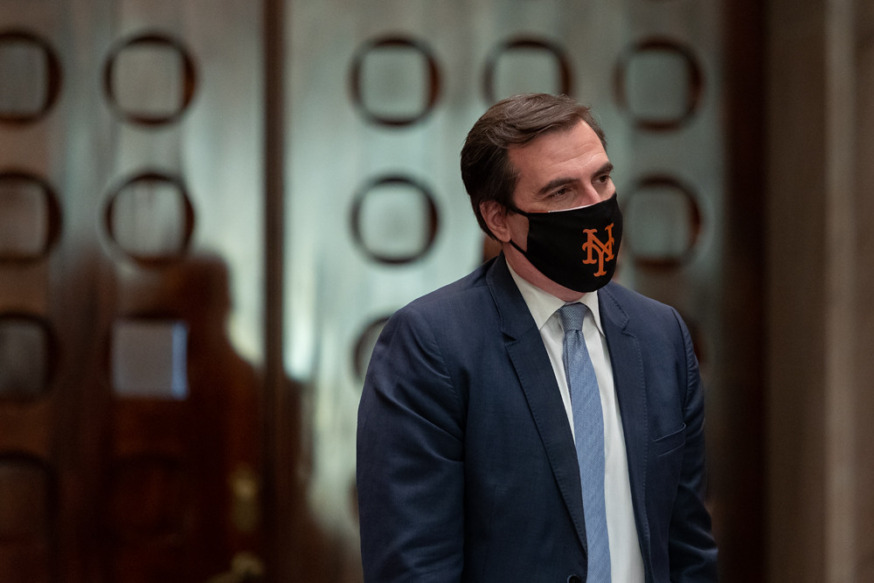
State Sen. Michael Gianaris (Senator Michael Gianaris / Flickr)
July 22, 2020 By Allie Griffin
The State Senate passed legislation Tuesday that would ban pet stores from selling dogs, cats and rabbits that come from commercial breeders.
The bill, introduced by State. Sen. Mike Gianaris, aims to end puppy mills and breeding farms, where animals are typically overbred and often confined to poor living conditions.
Gianaris hopes the legislation will end the puppy mill pipeline to pet stores. He said pet-seekers should instead turn to shelters and rescue organizations to adopt animals in need of a home. Pet store owners can also work with shelters to organize adoption events at their stores.
“With so many good animals in need of rescue, there is no need for pet stores to sell animals that predominantly come from abusive puppy and kitten mills,” Gianaris said in a statement. “Our four-legged companions should be treated with respect, not like commodities.”
The bill passed the Senate Tuesday with a 47-13 vote. Gianaris first introduced the bill in 2018 and this was the first time it came to the floor for a vote.
The bill will need to pass the State Assembly and get Governor Andrew Cuomo’s signature to become law. It currently has dozens of co-sponsors in Assembly, including Queens Assembly members Brian Barnwell, Catalina Cruz and Aravella Simotas.
“I am thankful my legislation passed the Senate and look forward to further progress in the future,” Gianaris said.
Animal welfare groups celebrated the bill’s passage in the Senate.
“New York State is one step closer to shutting down the puppy mill pipeline for good and protecting thousands of animals from suffering for the sake of profit,” ASPCA President and CEO Matt Bershadker said in a statement.”
New York would become the third state in the U.S. to pass such a law. California and Maryland passed similar pet sales bans in the last year.
But the bill does have its critics.
The Pet Industry Joint Advisory Council, which represents pet store owners, issued a statement earlier this year that says the bill is misguided, arguing that responsible pet store owners will suffer and that many purchasers seeking a specific type of breed will go directly to the bad breeders anyway.
“In reality, the bad breeders this legislation targets will go untouched while responsible pet store owners pay the price and will be forced to close their doors and lay off hardworking New Yorkers,” the group said in a statement. “Families who are seeking a specific breed of dog will be driven to unlicensed sources, and could fall victim to unscrupulous sellers.”
The law would affect roughly 80 pet stores that are registered to sell domestic animals in the state.
There are more than a dozen registered pet stores in Queens, including in neighborhoods such as Astoria, Corona, Sunnyside, Flushing, Forest Hills, College Point and Bayside.
2 Comments

Thank you, thank you. If you want to sell animals go to the shelters and give those babies a chance for a good and happy life. ‘ALL the pet stores can do the same.
This law, when enacted, will result in many private pet stores out of business.